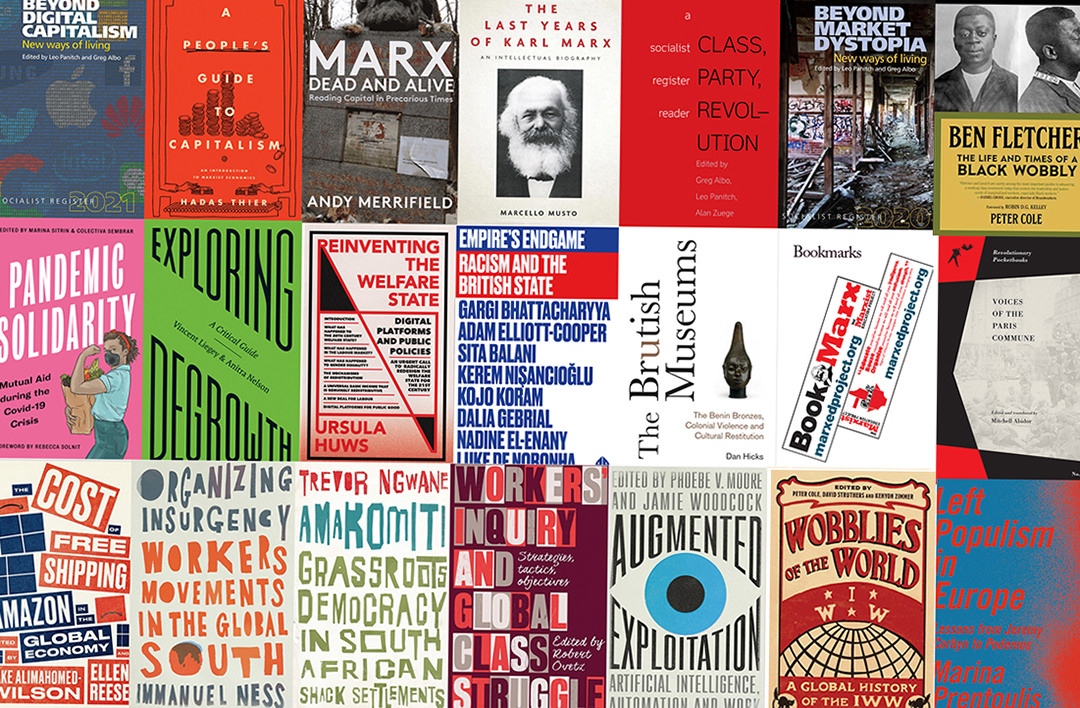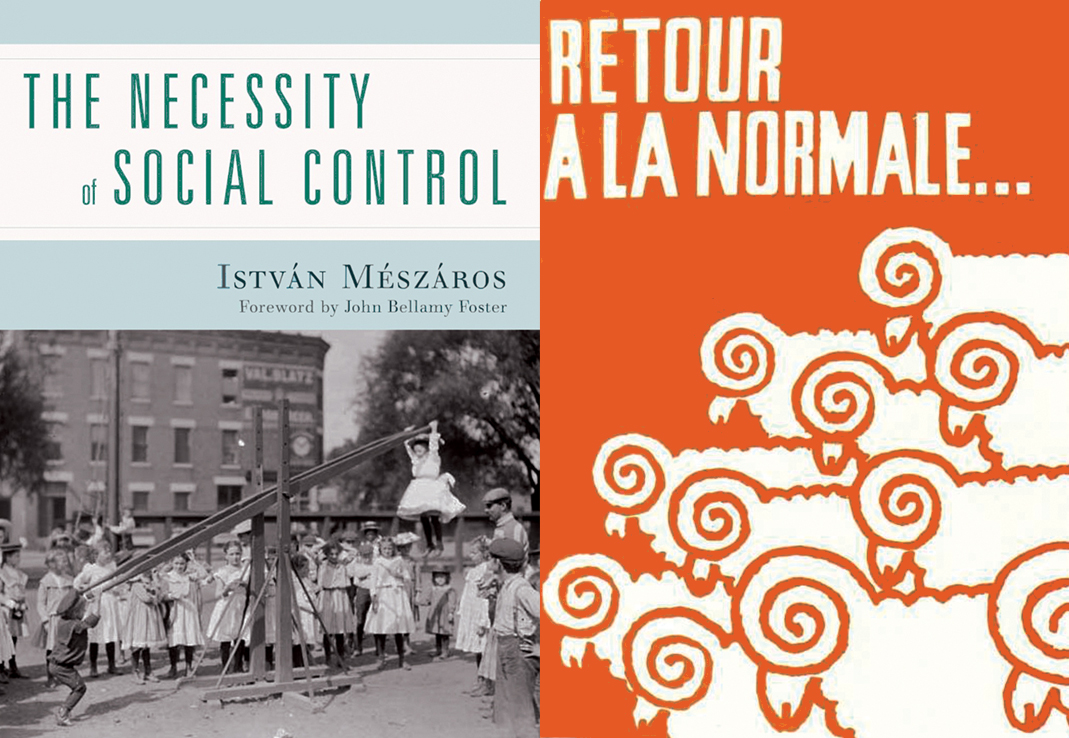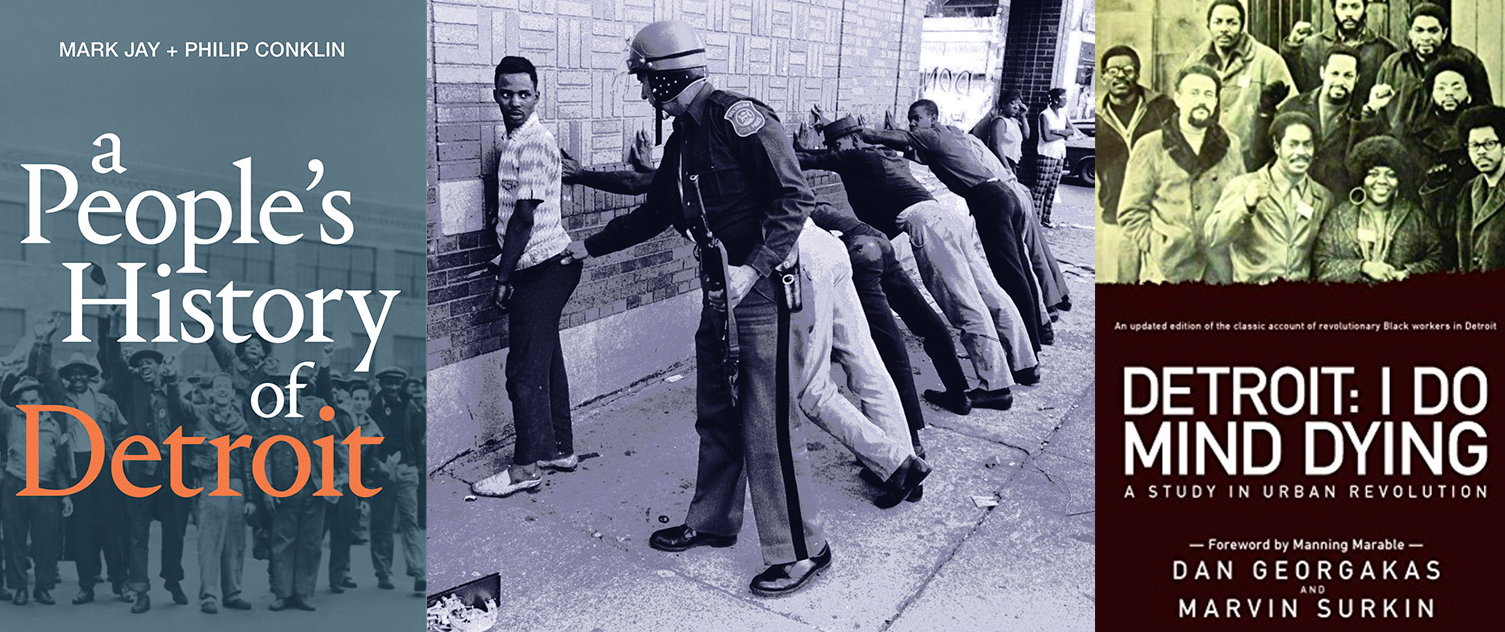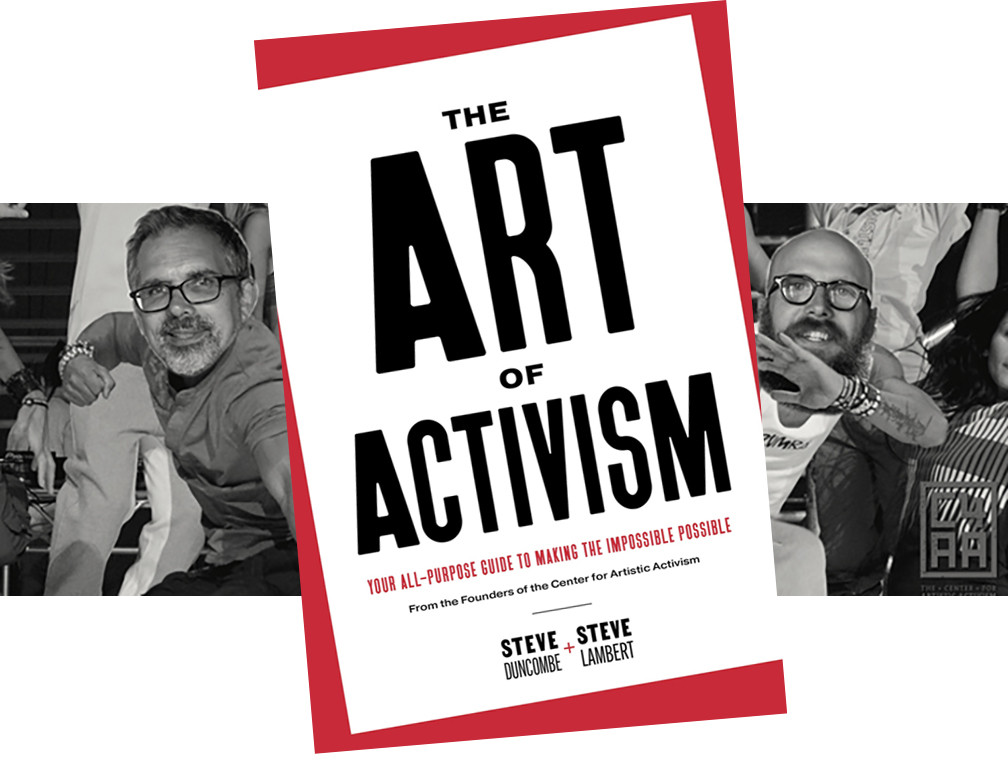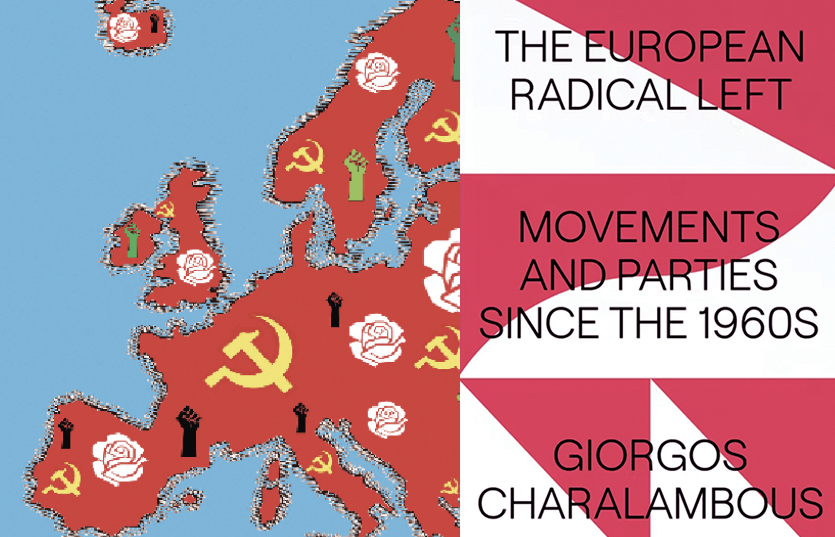After Wampum, the Evolution of Money in Colonial America
Online: Zoom link will be provided to registered participantsA TALK WITH PETER FAY We will travel back in time to colonial New England and New York to closely examine Marx’s views on money at the periphery of the British empire. Scarcity of British currency forced many commodities toward the role of “universal equivalent”: Indian corn, tobacco, pieces of eight. But it was colonial thirst for luxury commodities like beaver pelts that finally drove an explosive growth in the one money-commodity facilitating that trade: wampum.
The MEP Bookstore, Fall 2021/Winter 2022 (inclusive of shipping—US and Puerto Rico only)
Online: Zoom link will be provided to registered participantsBooks that will be used during the Winter of 2021 sessions—good for a lifetime of learning. There are Socialist Registers for 2020 and 2021, Pluto's Wildcat and FireWorks series. The any four, five or six books offers do include shipping.
The Necessity of Social Control by István Mészáros
Online: Zoom link will be provided to registered participantsDuring these remaining eight sessions we will do an ongoing close reading of Mészáros’ The Necessity of Social Control (Monthly Review Press). This read in order to better understand the fundamental contradictions of capitalism, the forms of domination and exploitation inherent in its logic, historical efforts to develop an alternative economy and society, and the challenge of sustainable development and substantive equality. We aim to develop our own knowledge of the necessary conditions for emancipation and discuss the relevance of the text for our lives today.
The Politics of Permaculture with Terry Leahy
Permaculture is an environmental movement that makes us reevaluate what it means to be sustainable. Through innovative agriculture and settlement design, the movement creates new communities that are harmonious with nature. It has grown from humble origins on a farm in 1970s Australia and flourished into a worldwide movement that confronts industrial capitalism. Terry Leahy’s THE POLITICS OF PERMACULTURE is one of the first books to unpack the theory and practice of this social movement that looks to challenge the status quo.
The Necessity of Social Control by István Mészáros
Online: Zoom link will be provided to registered participantsDuring these remaining eight sessions we will do an ongoing close reading of Mészáros’ The Necessity of Social Control (Monthly Review Press). This read in order to better understand the fundamental contradictions of capitalism, the forms of domination and exploitation inherent in its logic, historical efforts to develop an alternative economy and society, and the challenge of sustainable development and substantive equality. We aim to develop our own knowledge of the necessary conditions for emancipation and discuss the relevance of the text for our lives today.
A People’s History of Detroit and Detroit, I Do Mind Dying
In A PEOPLE’S HISTORY OF DETROIT, Mark Jay and Philip Conklin use a class framework to tell a sweeping story of Detroit from 1913 to the present, embedding Motown’s history in a global economic context DETROITL I DO MIND DYING tracks the extraordinary development of the Dodge Revolutionary Union Movement and the League of Revolutionary Black Workers
Late Capitalist Fascism
What if fascism can no longer be confined to political parties or ultra nationalist politicians but has become something much more diffuse that is spread across our societies as cultural expressions and psychological states? This is the thesis developed by Mikkel Bolt Rasmussen, who argues that late capitalism has produced hollowed-out and exchangeable subjectivities that provide a breeding ground for a new kind of diffuse, banal fascism.
The Necessity of Social Control by István Mészáros
Online: Zoom link will be provided to registered participantsDuring these remaining eight sessions we will do an ongoing close reading of Mészáros’ The Necessity of Social Control (Monthly Review Press). This read in order to better understand the fundamental contradictions of capitalism, the forms of domination and exploitation inherent in its logic, historical efforts to develop an alternative economy and society, and the challenge of sustainable development and substantive equality. We aim to develop our own knowledge of the necessary conditions for emancipation and discuss the relevance of the text for our lives today.
A People’s History of Detroit and Detroit, I Do Mind Dying
In A PEOPLE’S HISTORY OF DETROIT, Mark Jay and Philip Conklin use a class framework to tell a sweeping story of Detroit from 1913 to the present, embedding Motown’s history in a global economic context DETROITL I DO MIND DYING tracks the extraordinary development of the Dodge Revolutionary Union Movement and the League of Revolutionary Black Workers
The Art of Activism
THE ART OF ACTIVISM brings together the authors’ extensive practical knowledge—gleaned from over a decade’s experience training activists around the world—with theoretical insights from fields as far-ranging as cultural studies and cognitive science.
Old and New Contradictions: Opening Socialist Register 2022 Session—The Crisis of Centrism
The stage is set well for Socialist Register No. 58 in the Preface by Greg Albo and Colin Leys: “current multi-dimensional crisis, the center-right consensus that was struck around the neoliberal policy regime has been steadily splintering, with a phalanx of far right and neo-fascist groups inserting themselves into electoral politics and gaining prominence ‘in the streets’ (not least in motley demonstrations against pandemic measures of any kind, from lockdowns to masking). The observation that capitalism is always characterized by just such economic and political polarizations has preoccupied – even haunted –socialist analysis from its very origins: in Marx’s and Engels’ memorable phrase of revolutionary optimism in The Communist Manifesto, ‘the more or less open civil war, raging within existing society, up to the point where that war breaks out into open revolution, and … lays the foundation for the sway of the proletariat’. In the much picked-over chapter in Marx’s Capital on ‘The General Law of Capitalist Accumulation’, the language is just as vibrant but now stark in its imagery: ‘The greater the social wealth, the functioning capital, the extent and energy of its growth, and therefore also the greater the absolute mass of the proletariat and the productivity of itslabor, the greater is the industrial reserve army…. Accumulation of wealth at one pole is, therefore, at the same time the accumulation of misery, the torment of labor, slavery, ignorance, brutalization at the opposite pole, i.e. on the side of the class that produces its own product as capital.’
Beyond Money: A Postcapitalist Strategy with Anitra Nelson
What might a world beyond the discipline and constraints of the market look and feel like? How would it operate to meet our basic needs? Moving from production for trade (for the market) to production on demand, activist scholar Anitra Nelson advocates a community mode of production and calls on us to ‘occupy the world’. Come along to hear about and engage in this lively intervention in current debates on postcapitalist futures.
The European Radical Left: Movements and Parties Since the 1960s
With a unique 'two-level' perspective, Giorgos Charalambous approaches the left through both social movements and party politics, looking at identities, rhetoric and organization, and bringing a fresh new approach to radical history, as well as assessing challenges for both activists and scholars.
Insurrecto with author Gina Apostol in conversation with Patricia McManus
Gina Apostol’s Insurrecto is a harrowing depiction of the nearly 125-year history of U.S. intervention, occupation, and domination in the Philippines.
“Of course, as opposed to the colonizer, the world of the colonized is visibly and thus irreparably multiple – because included in the world of the colonized is the world of the colonizer.”. —“How Do We Know the Things That Make Us?”, An essay from Gina Apostol
Part One of Antonio Gramsci’s Prison Notebooks
Online: Zoom link will be provided to registered participantsThese seminars are accessible to people at all levels of familiarity with Gramsci’s work, including those just beginning their studies of Gramsci. This first session will be followed by consecutive sessions.


